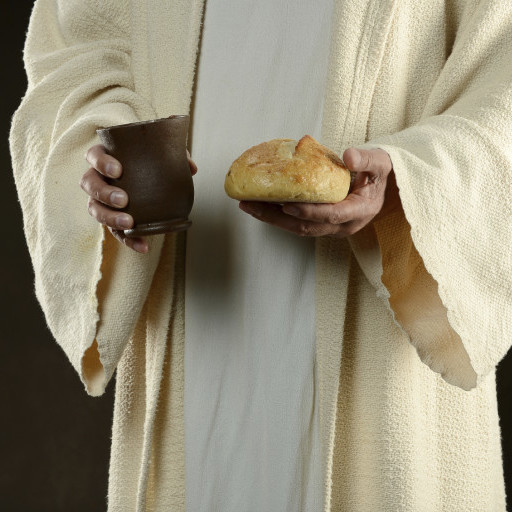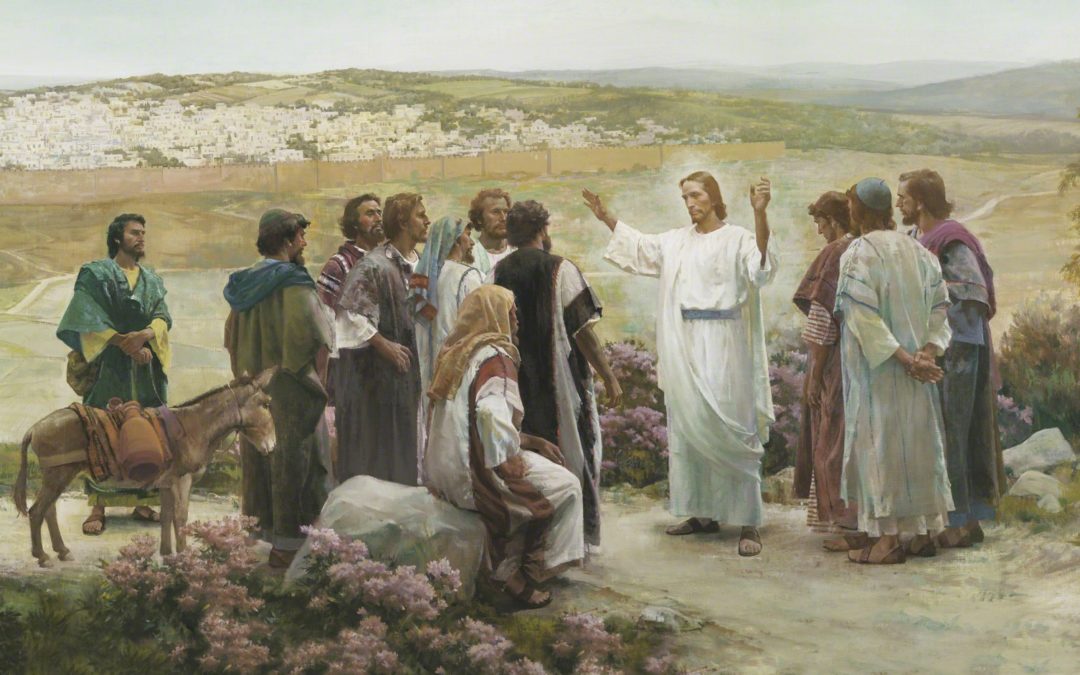Introduction to The Lord’s Prayer
In one of the more memorable moments of Jesus Christ’s early ministry, he taught his disciples how to pray. The Lord’s Prayer stands singularly as one of the greatest prayers ever given. Jesus prayed as no other man prayed. His disciples heard his prayers just as they saw his marvelous miracles. Seeing and hearing all this, they would exclaim, “What manner of man is this?”. Jesus uttered ten recorded prayers, the last three being on the cross:
“Father forgive them for the know not what they do”[i]
“My God, My God, why hast thou forsaken me?”[ii]
“Father, into thy hands I commend my Spirit.”[iii]
Listening to his prayers must have been an unforgettable experience. One can imagine they were soft spoken. However, hanging on the cross, one could barely get enough breath to speak loudly, yet Christ’s last recorded prayer was given “with a loud voice” so he had to stand on the nails in his feet to get a big enough shout to be heard, suffering excruciating agony in the process.[iv]
In all his prayers, we and his disciples so long ago, get a glimpse of the loving kindness of his Father, our Heavenly Father. We feel his total trust in his Father, feel his gratefulness, and feel his total submission to the will of the Father. In the Garden of Gethsemane, he prayed:
And he was withdrawn from them about a stone’s cast, and kneeled down, and prayed, Saying, Father, if thou be willing, remove this cup from me: nevertheless not my will, but thine, be done.[v]
To his disciples there, he repeated what he had taught them in the Lord’s Prayer:
Pray that ye enter not into temptation.[vi]
We do not know how much Jesus was tempted here, only that the apostle Paul said that he was tempted on every point, even as we are.[vii] But in the midst of his agony in the Garden of Gethsemane and on the cross, we only see his tender concern for others who were likewise tempted in the Garden or sinning ignorantly as he said of his Roman tormenters, “Father, forgive, them for they know not what they do.”
His captivating sermons, now became reality. He had preached in the Sermon on the Mount “Love your enemies, bless them that curse you, do good to them that hate you, and pray for them which despitefully use you,”[viii]Now we can no longer forget platitudes spoken in earnest when we see it in action in the most extreme of circumstances. He is our master, our healer, our divine example of how to live a Christian life, our Savior and Redeemer. We take upon ourselves his name, which means salvation, to become like him, saviors on mount Zion. He teaches, we learn eternal truths. He shows the way and we follow, doing his works and praying as he did.
One of his shortest prayers is at the tomb of Lazarus. Here he thanks his Father before the miracle as if the miracle had already happened. This prayer, were we to emulate it like he asks us to, requires not only total faith that God can answer prayers, but also foreknowledge of what is the will of the Father, and trust that God has all power to accomplish all his prophesied works.
The longest prayer Jesus uttered is the Hight Priestly prayer of reconciliation, another name for the atonement. “To cover” or “kafar” in Biblical Hebrew is translated in The Septuagint, the ancient Greek Old Testament and in the New Testament Greek as “reconciliation”, to reconcile one with God, the Father, to be brought back into His divine presence. Since no unclean thing can enter Heaven, our sins must be atoned or covered from the face of God, so that they are remembered by Him no more. This atonement or reconciliation is the role of the High Priest in Israel on the day of the Atonement, when he reconciles Israel with God through the sacrifices instituted by Moses and the Patriarchs.
Here in the High Priestly prayer, Jesus acts as if His atonement had already happened when he prays that:
Neither pray I for these alone, but for them also which shall believe on me through their word; That they all may be one; as thou, Father, art in me, and I in thee, that they also may be one in us: that the world may believe that thou hast sent me. And the glory which thou gavest me I have given them; that they may be one, even as we are one: I in them, and thou in me, that they may be made perfect in one; and that the world may know that thou hast sent me, and hast loved them, as thou hast loved me.[ix]
This oneness with the Father and Christ, is available to all who believe in Jesus, repent of their sins, be baptized by water and fire and endure to the end in following Jesus. Obviously, if we pray for oneness, we have to pray to forgive our enemies and pray that God forgive them, for that is the pattern Jesus showed in forgiving his enemies before they asked for forgiveness. When we draw our enemies to us by our righteous example, then we can help them become one with Christ and the Father and with us in that glorious unity of the last day.
Jesus told us how not to pray:
Don’t pray to be seen and praised of men
Don’t pray with pride
Don’t pray with empty promises and words
Don’t use vain repetitions
Don’t pray while abusing the poor and widows
He told us to pray like the importunate widow, pleading for God, like the unjust Judge, to answer us in our greatest need.
He told us to pray without repeating ourselves over and over again, but to continually pray for new things.
There are 5 versions of the Lord’s prayer in the scriptures. They are all very similar except for the last line which will be covered in a future post. Being quoted by so many authors, one sees how important this message on praying was to the early disciples on both sides of the world.
Each future post will be a meditation on the meaning of a word in the Lord’s Prayer. More people are praying now in the world in every religion than ever before. It is my solemn witness that God is the Father of every living human being and takes a personal interest in the prayers of each of us without favoritism. We know He loves us because He sent His Only Begotten Son to suffer, bleed and die for all humanity. He wants to hear from us, so He taught us how to pray to Him through His Son.
[i] Luke 23:34 KJV
[ii] Matthew 27:46 KJV
[iii] Luke 23:46 KJV
[iv] ibid
[v] Luke 22:39-42
[vi] ibid
[vii] Hebrews 4:15
[viii] Luke 6:44
[ix] John 17:20-23

